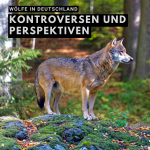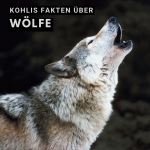Wolves have exercised a mysterious fascination over humans for centuries. In fairy tales and myths, they are often depicted as fierce and dangerous creatures roaming dark forests in search of prey. In reality, however, wolves in Germany were almost completely exterminated for a long time and were considered a symbol of the disappearance of the wilderness before the advance of civilization.
But the picture has changed dramatically in recent decades. The wolf has returned to Germany, and with its return a multitude of opinions and controversial discussions have also arisen. While some enthusiastically welcome the reintroduction of the predators and celebrate it as a conservation success, others harbor profound fears and skepticism about their presence.
The return of wolves to Germany is undoubtedly a sign of the positive development of nature conservation in Europe. Targeted protective measures and changes in the law have allowed the wolf population to recover slowly, after centuries of being almost wiped out by hunting and habitat loss. Nowadays there are prized wolf packs in different regions of Germany, from the forests of Brandenburg to the mountain ranges of Bavaria.
Wolves advocates point to the important role these majestic predators play in the ecosystem. As top predators, they regulate the population of wild animals and thus contribute to a healthy balance in nature. This natural regulatory process has a positive impact on the health of wild populations and ultimately the health of the entire environment.
Additionally, some see the reintroduction of wolves as a step toward making amends for what man has done to nature over time. It's a way to correct the mistakes of the past and work to preserve biodiversity by restoring a key role in the ecosystem.
But not everyone shares this enthusiasm. The presence of wolves has also raised a great deal of controversy and concern, particularly in rural areas where livestock farming is important. Farmers fear for their herds and fear that reintroduction of wolves could result in significant economic losses. When a wolf attacks livestock, it can not only have a financial impact, it can also cause emotional distress for the farmers affected.
Another topic that often comes up in discussions about wolves is human safety. Although wolf attacks on humans are extremely rare, the mere idea of wolves being around triggers fear in some people. Concerns about the safety of children and pets, and fears of unpredictable encounters in remote areas, are influencing public opinion and may lead to calls for stricter regulation.
It is evident that the return of wolves to Germany brings with it a multitude of challenges that need to be considered and addressed. From agriculture to tourism to nature conservation and public safety, there are numerous aspects that need to be considered in the discussion. Finding a way that respects both the protection of these fascinating predators and the interests of people and their livelihoods is a complex task.
In this article, we will delve deeply into the various pros and cons that are emerging in relation to the presence of wolves in Germany. It is important to paint a comprehensive picture of this complex debate in order to gain a better understanding of the challenges and opportunities presented by the return of wolves.

Passionate "phone clipper". Currently with mine Samsung Galaxy S22 Ultra. A great phone with XNUMX TB of storage. Lots of space for experiments. My favorite subjects are plants, Eat & drink, animals, Buildings and Landscapes.
Otherwise, I like to spend my time in nature and sometimes hang out on the PC, with a cozy round Civ or Star Citizen, away. A series is also often sought after on the couch in the evening.





![Tutkit.com - Tutorials, assets and templates in a single e-learning platform [Advertisement]](https://www.kohli.blog/wp-content/uploads/2022/02/wp_image-_align___center__id__7704_sizeSlug___large__linkDestination___none_-_-_div-class_wp-block-image___figure-class_aligncenter-size-large___img-src_https___www.kohli_.blog_wp-content_uploads_2022-150x150.png)













